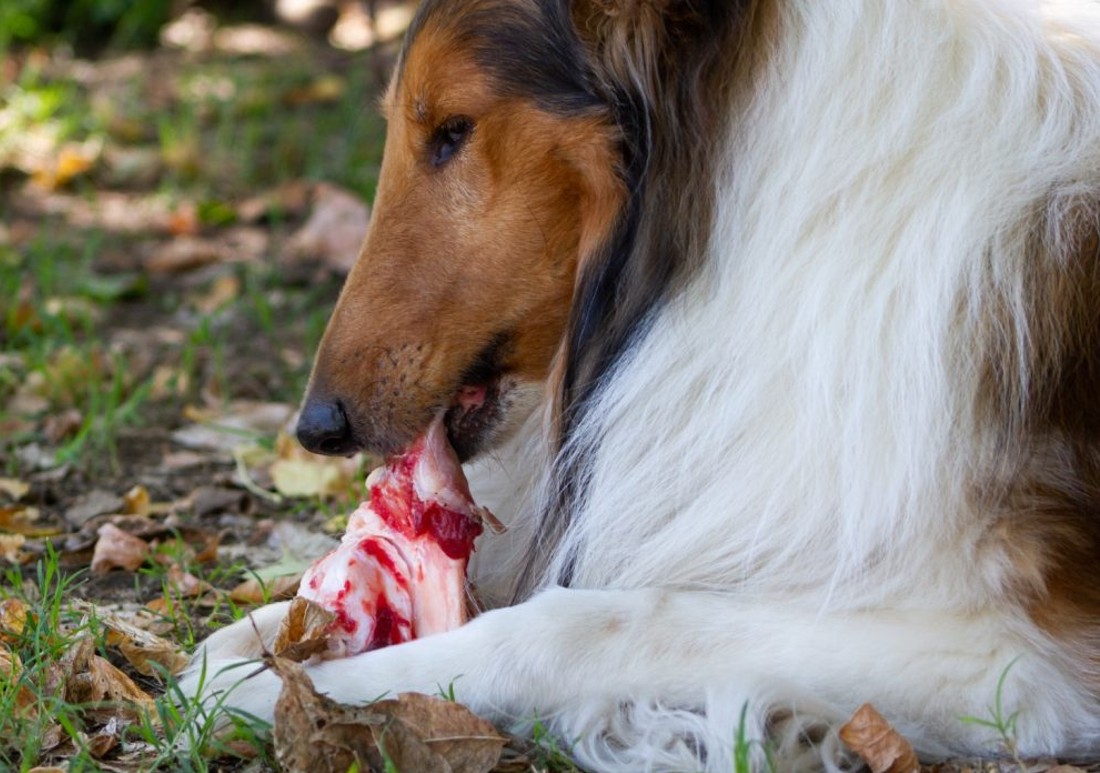Raw Diet for Pups: Can I Feed My Dog Raw Meat From the Supermarket?

Feeding dogs a raw diet, often called BARF (Biologically Appropriate Raw Food or Bones and Raw Food), has recently gained popularity among pet owners. This diet typically includes raw meat, bones, fruits, and vegetables, mimicking what dogs might eat in the wild.
However, one of the most common questions is whether feeding dogs raw meat purchased from the supermarket is safe and appropriate. In this blog, we’ll delve into a dog’s raw diet, focusing on the safety and nutritional aspects of feeding raw supermarket meat.
The Raw Dog Food Diet
A raw dog food diet generally consists of:
- Raw meat: Muscle meat, often still on the bone.
- Bones: Either whole or ground.
- Organ meats: Such as livers and kidneys.
- Raw eggs: Either whipped or with the yolk in tact.
- Vegetables and fruits: Like broccoli, spinach, and apples.
- Dairy: Some include dairy products like yogurt or cottage cheese.
Pros of a Raw Diet
- Improved dental health: Chewing raw bones can help reduce plaque and tartar buildup.
- Enhanced physical health: Raw food diets can promote shinier coats, healthier skin, and increased energy levels.
- Smaller stools: Due to the higher digestibility of raw foods.
Cons of a Raw Diet
- Risk of bacterial contamination: Raw meat can harbor pathogens like Salmonella and E. coli.
- Nutritional imbalances: Homemade raw diets may lack certain essential nutrients.
- Potential for choking or internal damage: Bones can be hazardous if improperly prepared.
- Cost and convenience: Preparing a raw diet can be more expensive and time-consuming than commercial diets.
Feeding Raw Meat from the Supermarket
When considering feeding your dog raw meat from the supermarket, there are several factors to take into account:
Quality and Freshness
The quality and freshness of the meat are crucial. Opt for human-grade meat and check the expiration dates. Avoid meats with added preservatives or flavorings that can be harmful to dogs.
Handling and Preparation
Practice safe food handling to prevent cross-contamination. This includes washing hands and surfaces thoroughly after handling raw meat. Freeze the meat for a short period before feeding to kill any parasites.
Balanced Nutrition
Simply feeding raw meat is not enough. It’s important to ensure a balanced diet by including the right proportions of bones, organs, and vegetables. Consult with a veterinarian or a canine nutritionist to ensure you meet your dog’s dietary needs.
Is Supermarket Meat Safe for Dogs?
Supermarket meat is generally safe for dogs, provided proper handling and care. However, the risk of bacterial contamination is higher with raw meat. It’s essential to source high-quality meat and maintain strict hygiene practices. You may also want to consider trying prepackaged raw dog food that’s been thoroughly checked for quality, safety, and nutrition.
Supplementing a Raw Diet
Since raw meat alone doesn’t provide a balanced diet, it’s important to supplement it with other nutrients:
- Calcium: If not feeding bones, use a calcium supplement.
- Fatty acids: Add fish or flaxseed oil for Omega-3 and Omega-6 fatty acids.
- Vitamins and minerals: Ensure your dog receives all necessary vitamins and minerals through diet diversity or supplements.
Transitioning to a Raw Diet
If you decide to switch your dog to a raw diet, you should do it gradually:
- Start small: Introduce raw food slowly, mixing it with their current food.
- Monitor Your Dog: Watch for any signs of gastrointestinal upset or allergic reactions.
- Adjust as needed: Based on your dog’s reaction, adjust the proportions and types of raw food.
- Consult with a veterinarian: Before switching to a raw diet, it’s crucial to consult with a veterinarian, especially for puppies, senior dogs, or dogs with health issues. A professional can guide nutritional balance and portion sizes.
Final Note!
Feeding your dog raw meat from the supermarket can be part of a healthy diet, but it requires careful consideration and preparation. Ensuring the diet is nutritionally balanced and safe from pathogens is key. Always seek professional advice to tailor the diet to your dog’s needs. A raw diet can contribute to your dog’s overall health and well-being with the right approach.
Your Pet’s Best Interest, Always
At Pet Institute, we take pet care seriously. We're dedicated to transparency, impartiality, and the well-being of your pets in every article, review, and recommendation we provide. Our unwavering commitment to these principles ensures that you, our valued reader, always receive reliable and unbiased information. Let us be your trusted guide in the world of pet care and companionship.